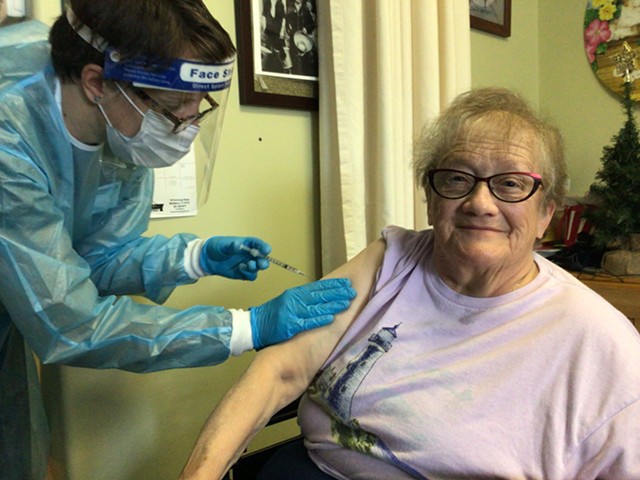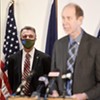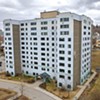click to enlarge 
- Courtesy of Porter Medical Center
- Helen Porter Rehabilitation and Nursing resident Elsie Johnson gets vaccinated in January.
The Scott administration said on Friday that people who have completed their COVID-19 vaccine regimen may travel to and from Vermont without needing to quarantine.
The travel perk kicks in two weeks after Vermonters and out-of-state visitors have received both doses of vaccine, Gov. Phil Scott said at Friday's COVID-19 press conference.
State leaders also said they would soon ease visitation and activities restrictions at long-term care homes, where roughly two-thirds of those who have died with COVID-19 in Vermont have resided.
The forthcoming guidelines for long-term care homes won't be released in full until February 26, but Human Services Secretary Mike Smith said they would enable eldercare homes to allow visitors and resume some communal activities.
The relaxed restrictions come as 74 percent of eldercare residents statewide have received both vaccine doses, and has roughly half of the state's long-term care staff, according to Smith. Vaccination clinics have been offered at every licensed home.
"We feel it's safer than it has been before, because of our ability to vaccinate some of the most vulnerable Vermonters," Smith said.
Cross-state travelers and long-term care communities will still be expected to follow masking and social distancing requirements, officials said.
About 30,100 Vermont residents will be considered "fully vaccinated" by February 23, when the new travel rule takes effect, according to a Vermont Department of Health
vaccine dashboard. Those traveling without quarantining should be able to prove that they have received both shots, officials said.
Everyone else traveling to Vermont or returning from a trip out of state must quarantine for at least seven days and receive a negative test result for the disease. A 14-day quarantine eliminates the need for a test.
The new rule follows U.S. Centers for Disease Control and Prevention guidelines issued this month, though research remains limited on how the COVID-19 vaccines affect transmission of the virus or its recent mutations.
Scott said the federal guidelines raise "literally dozens of 'what if' and 'what about' questions." Vermont, he said, is choosing to update its own guidelines "carefully and methodically."
"Every step we make comes with questions," he said. "We're taking it one step at a time to lessen confusion."
Vaccines are currently available to Vermont residents 70 and older. More than 80,000 residents have received at least one dose since the inoculation drive began in December.



















































